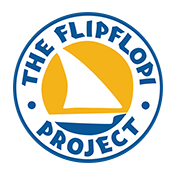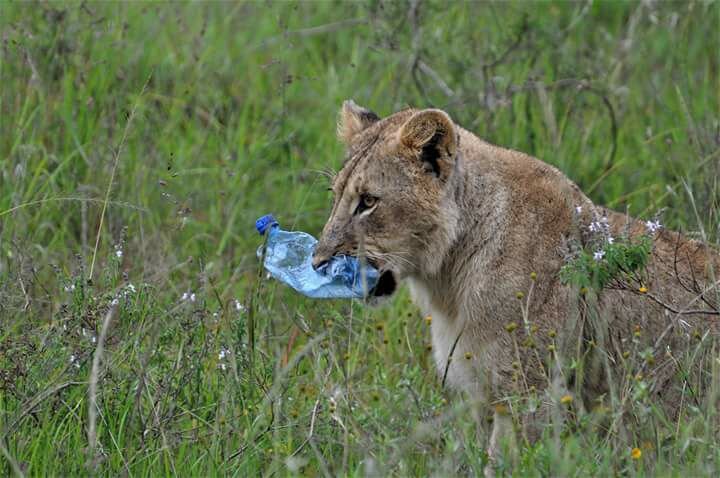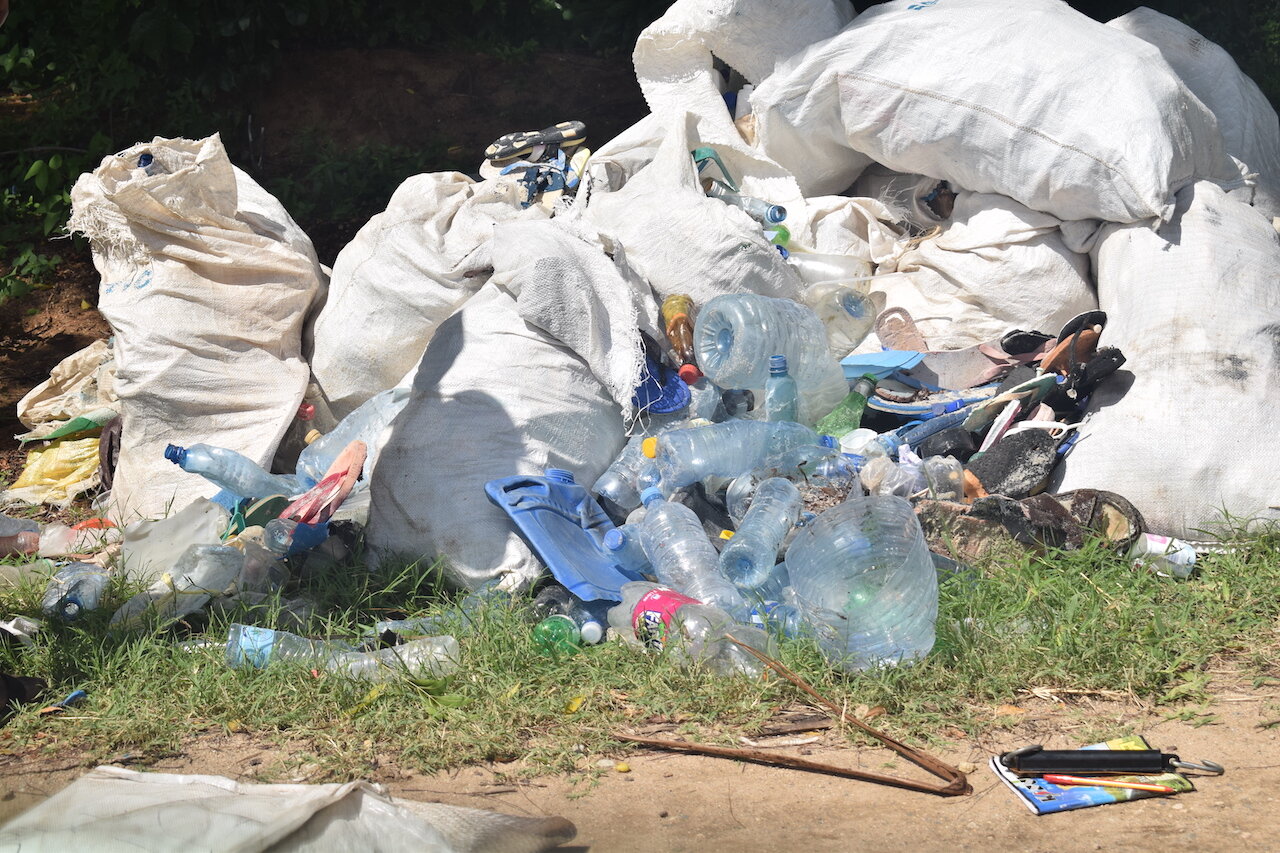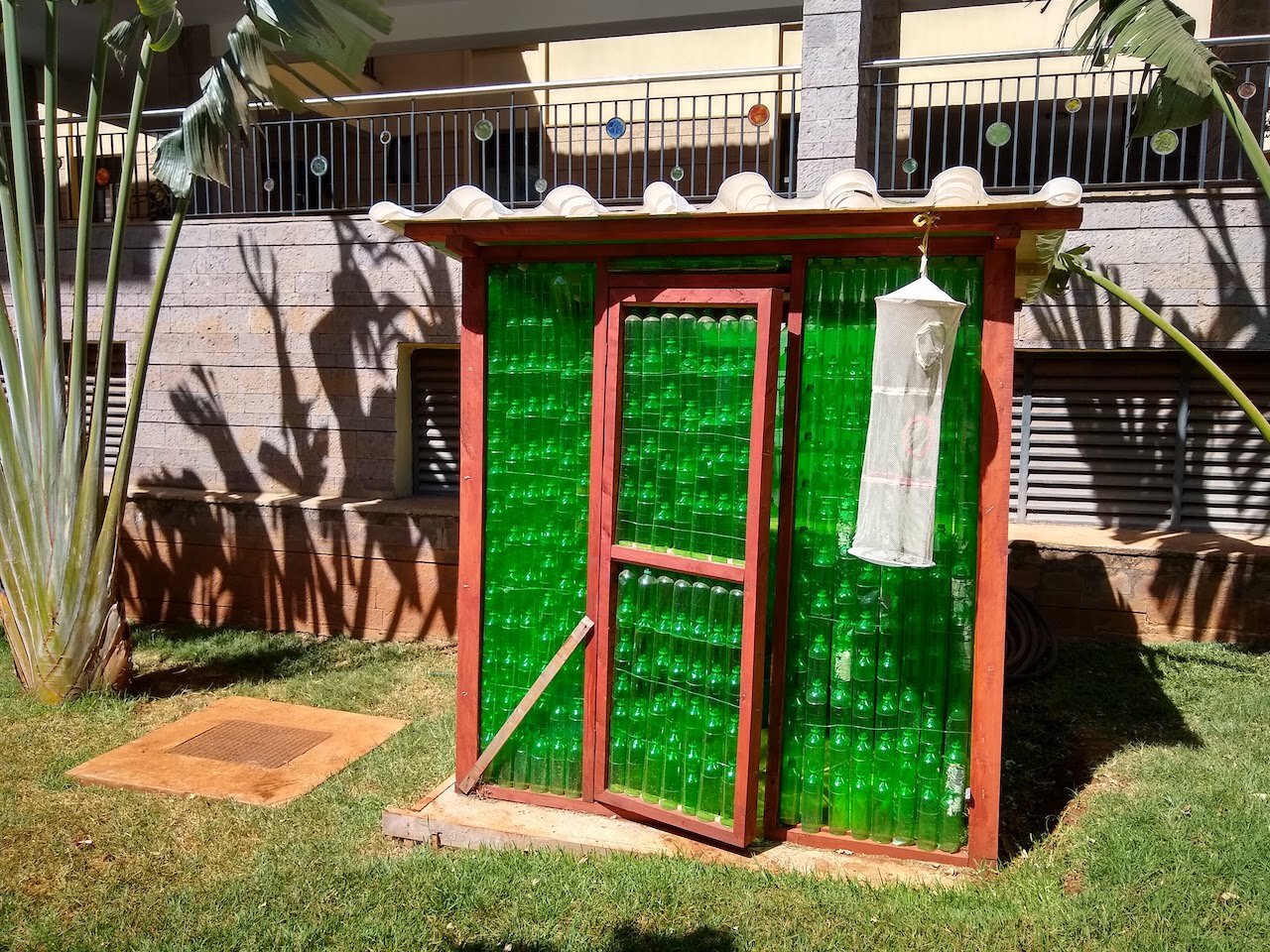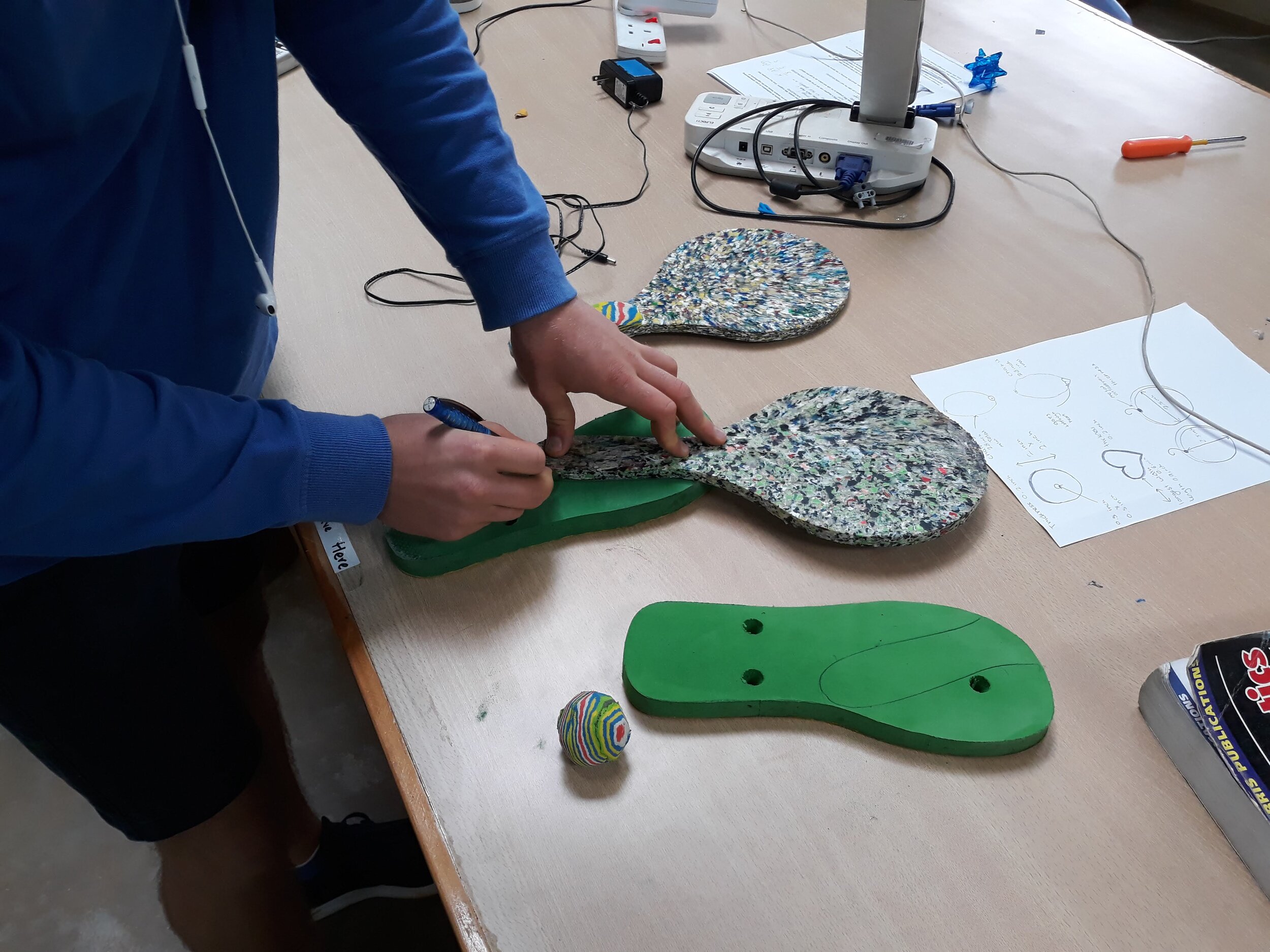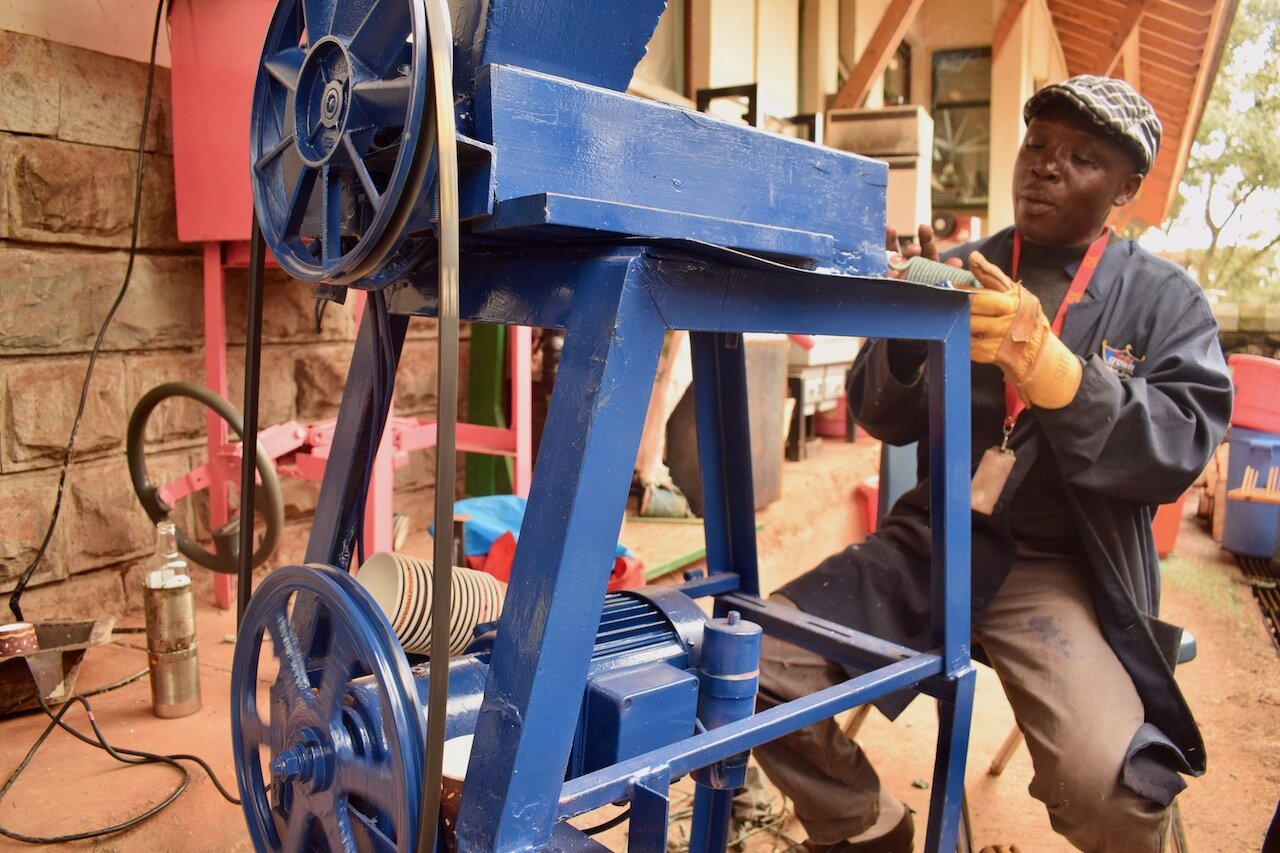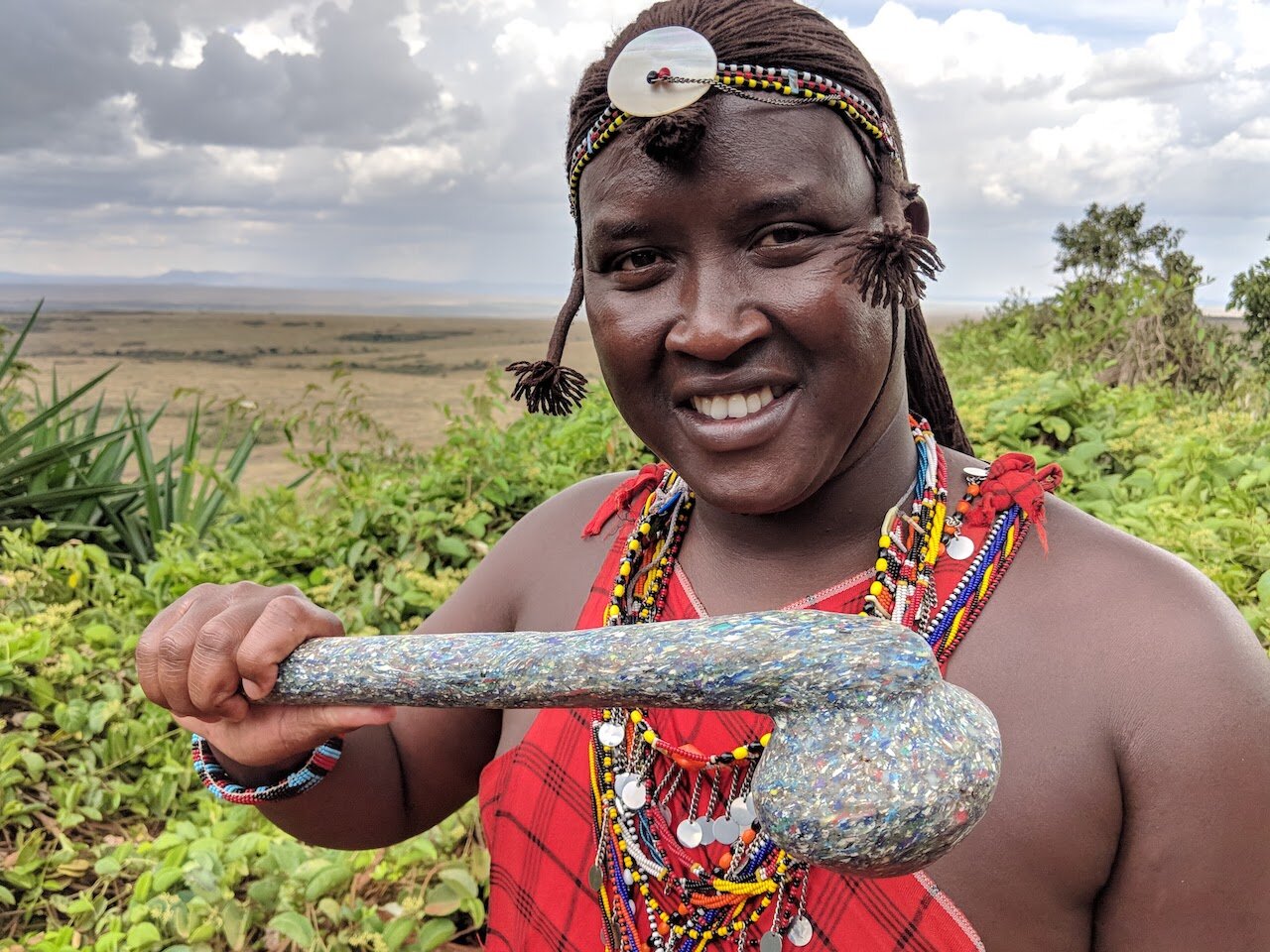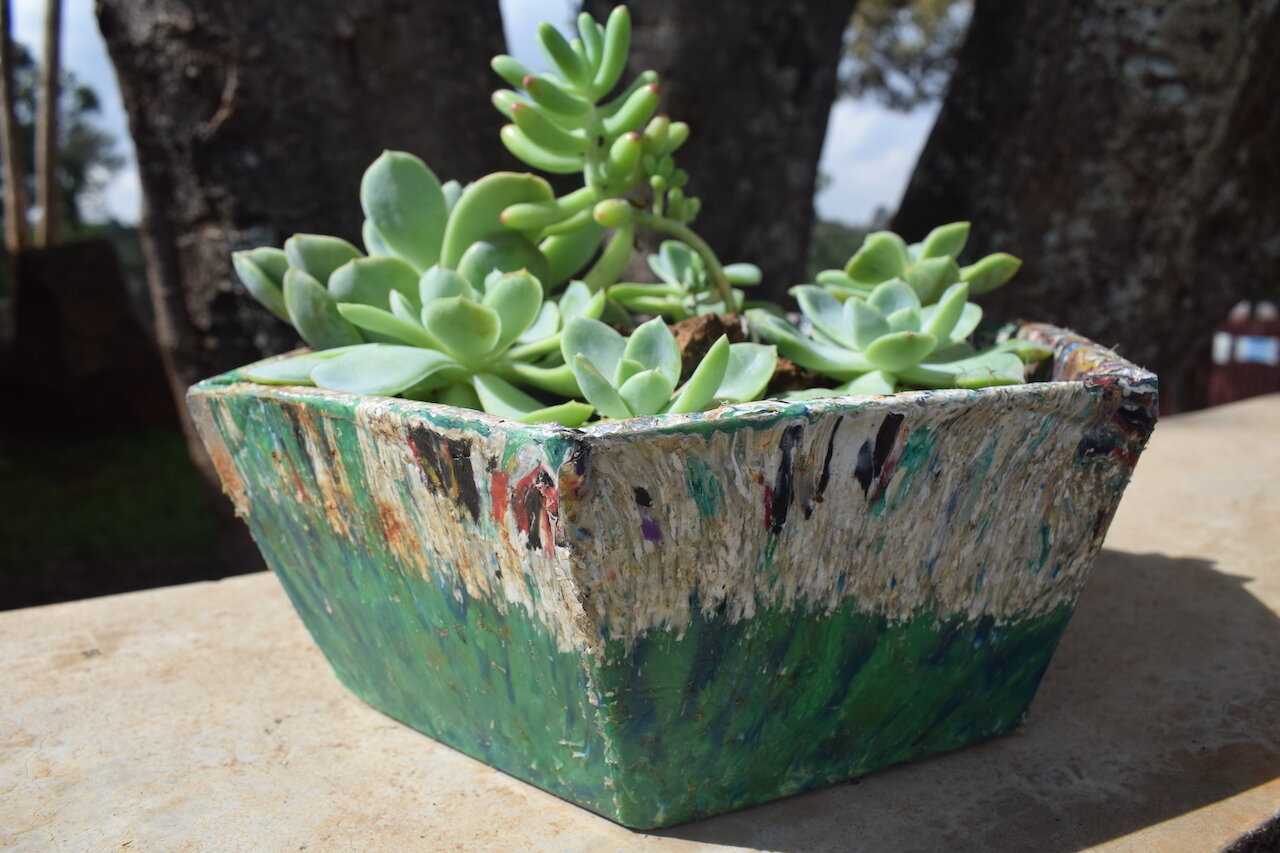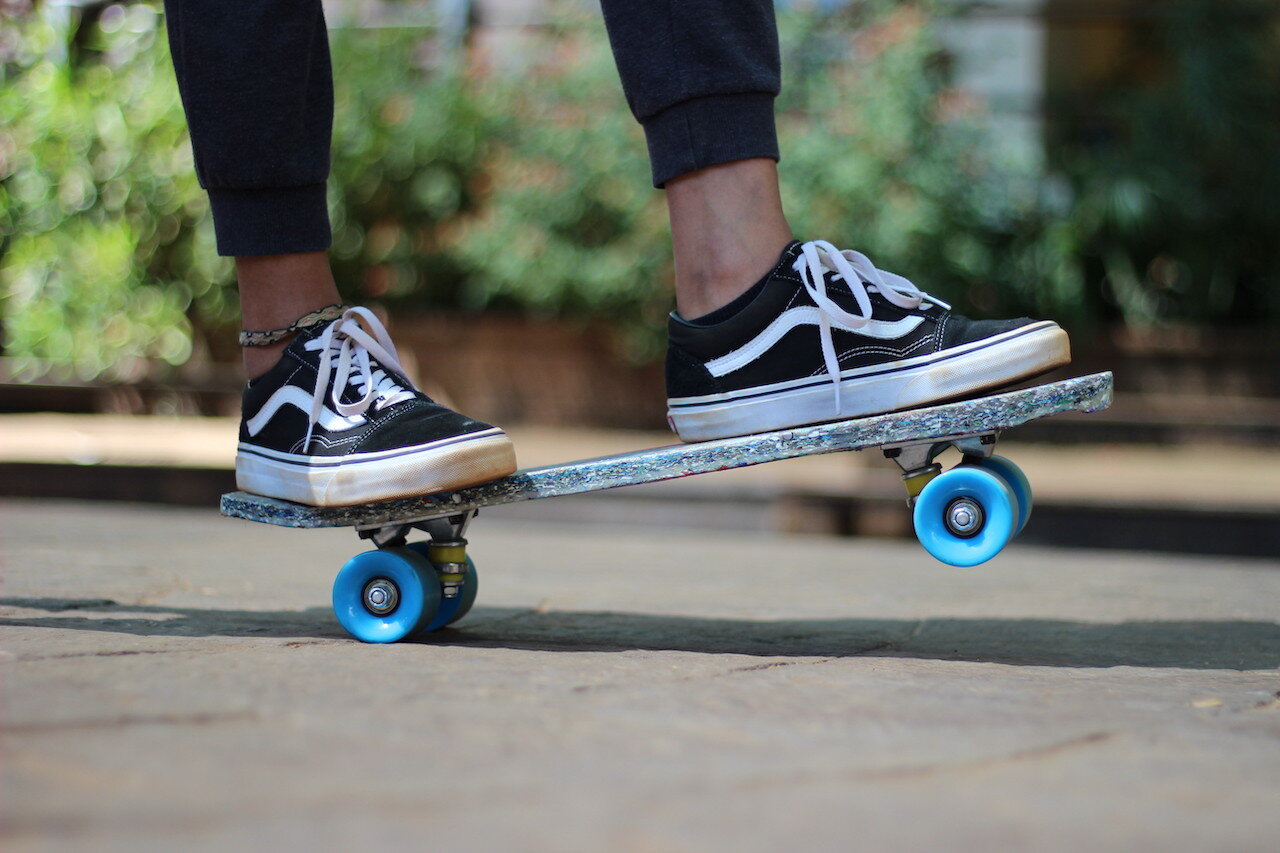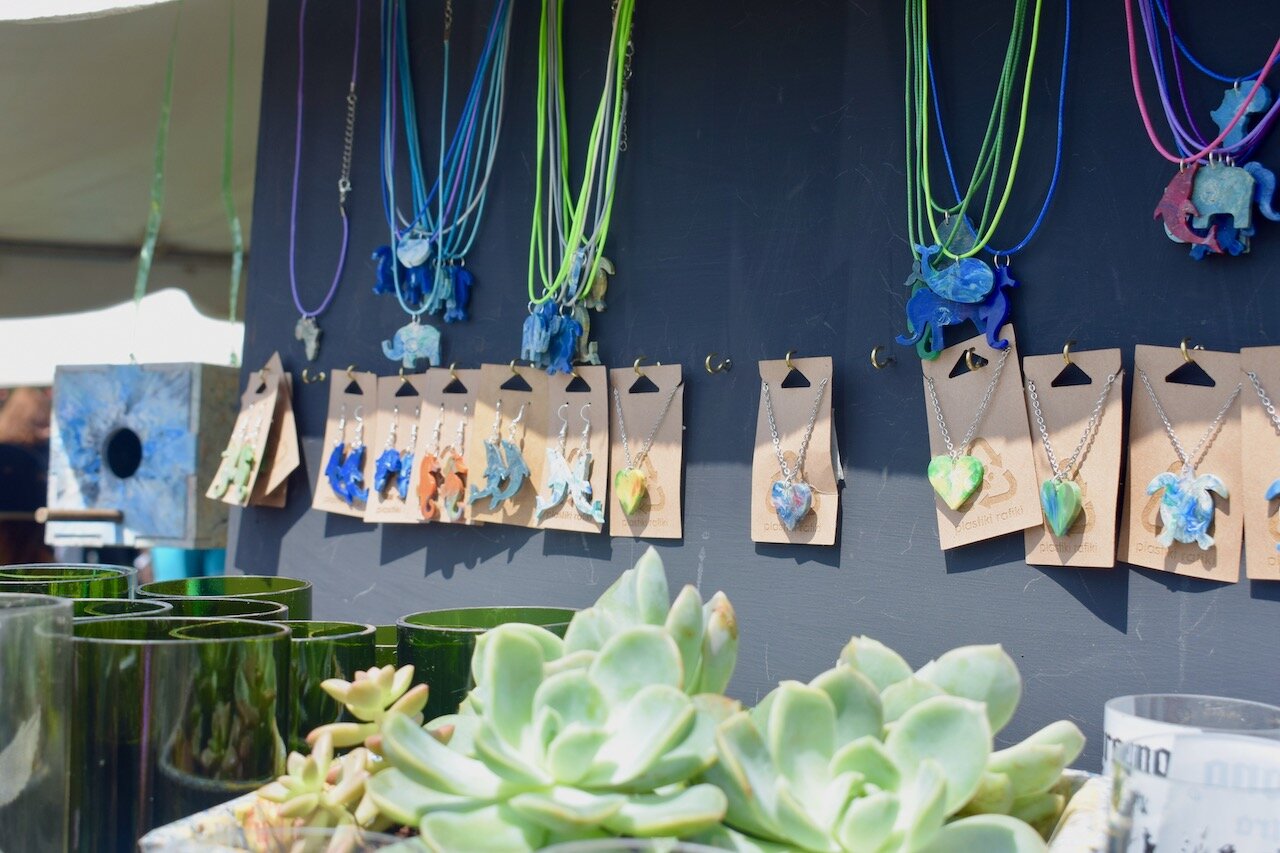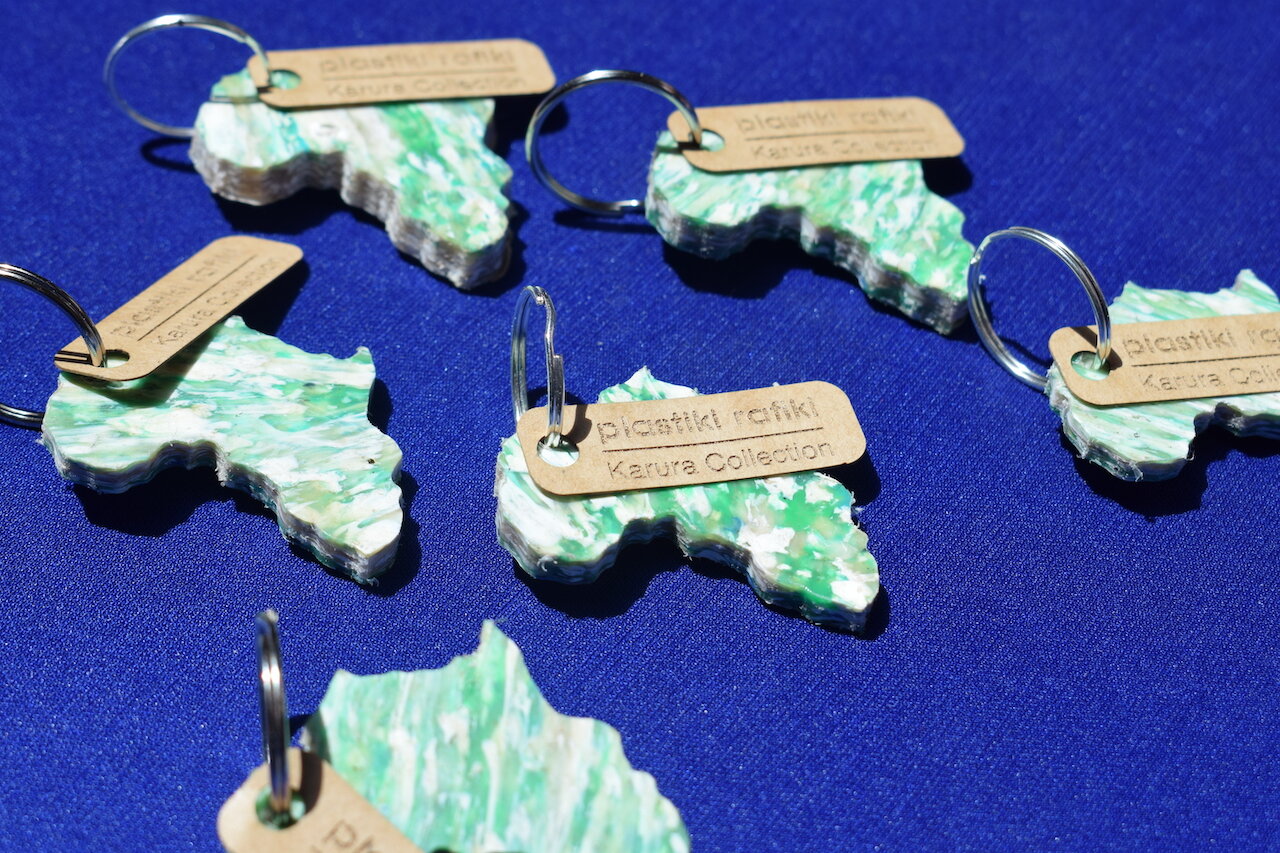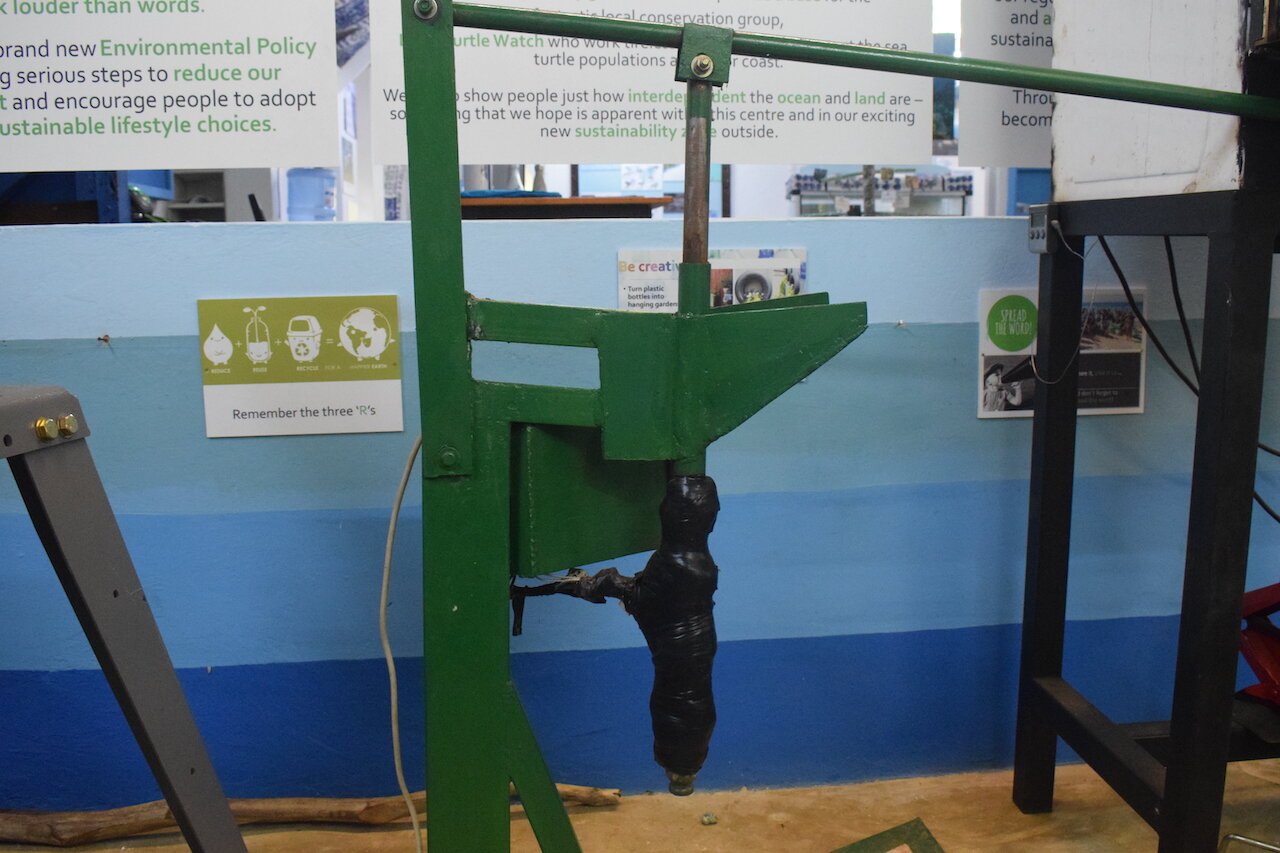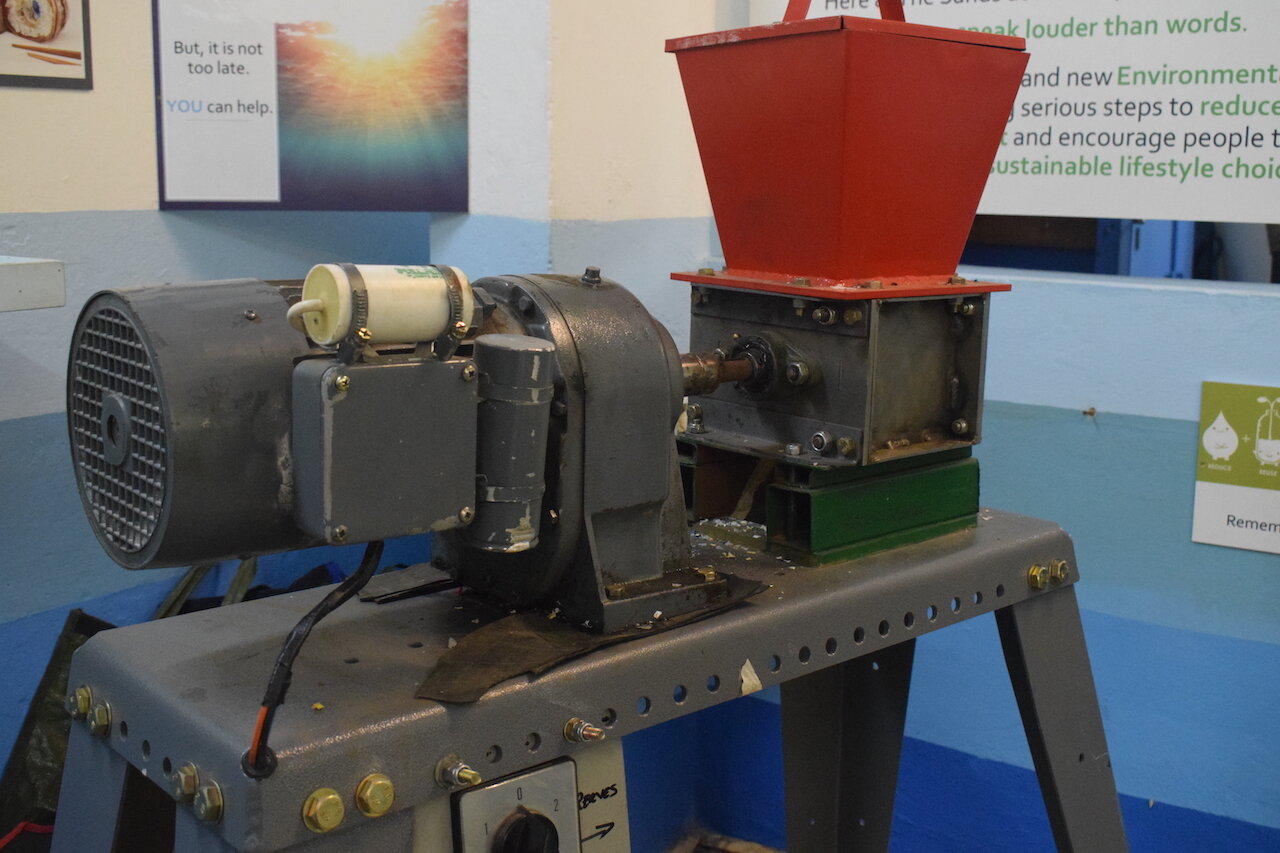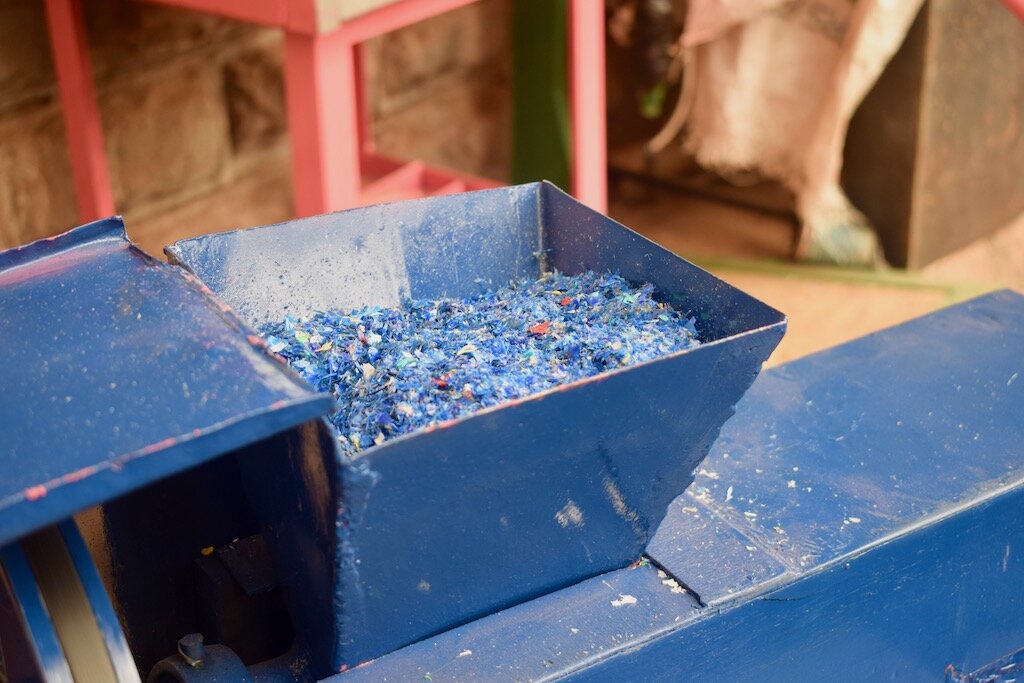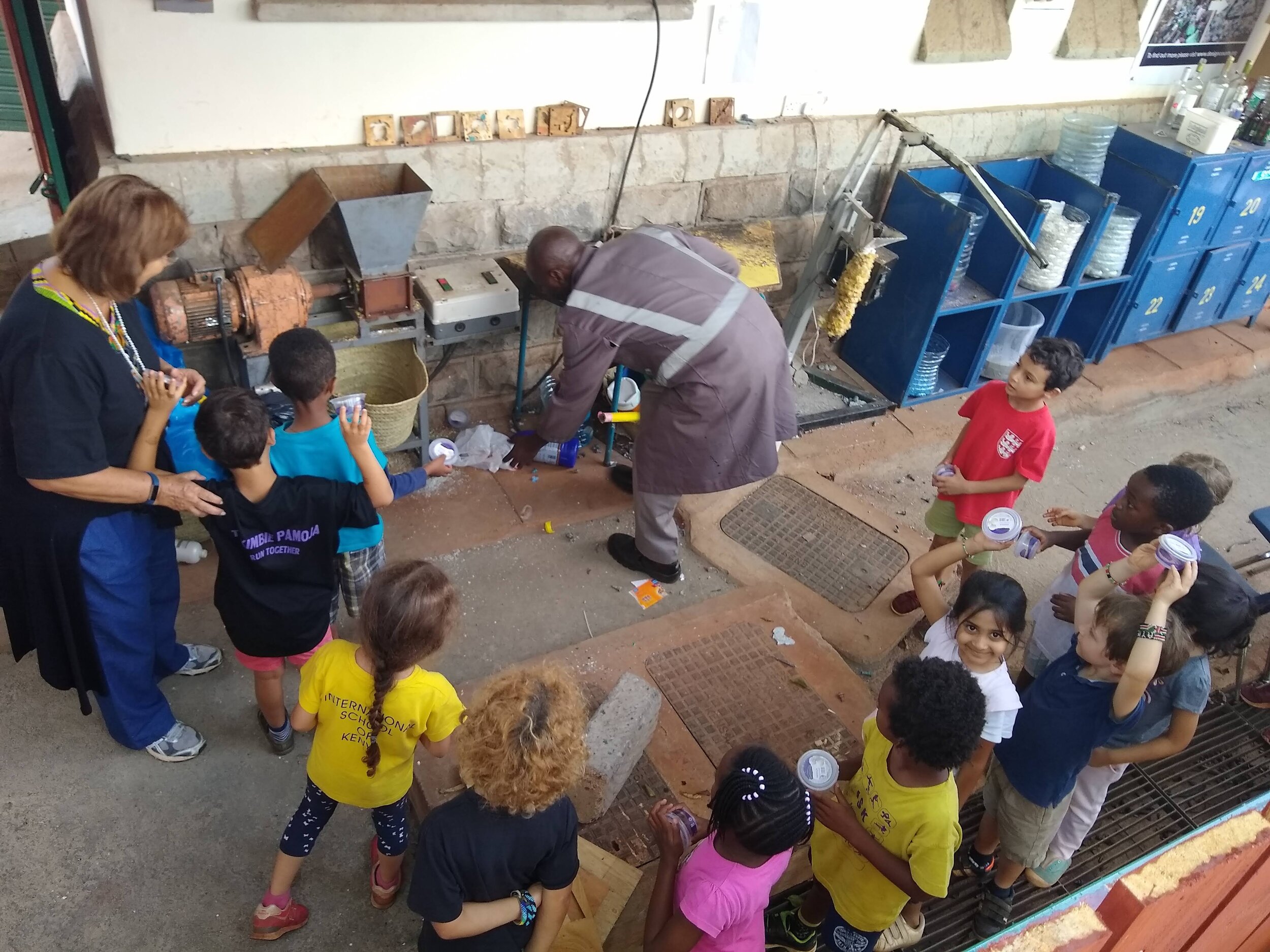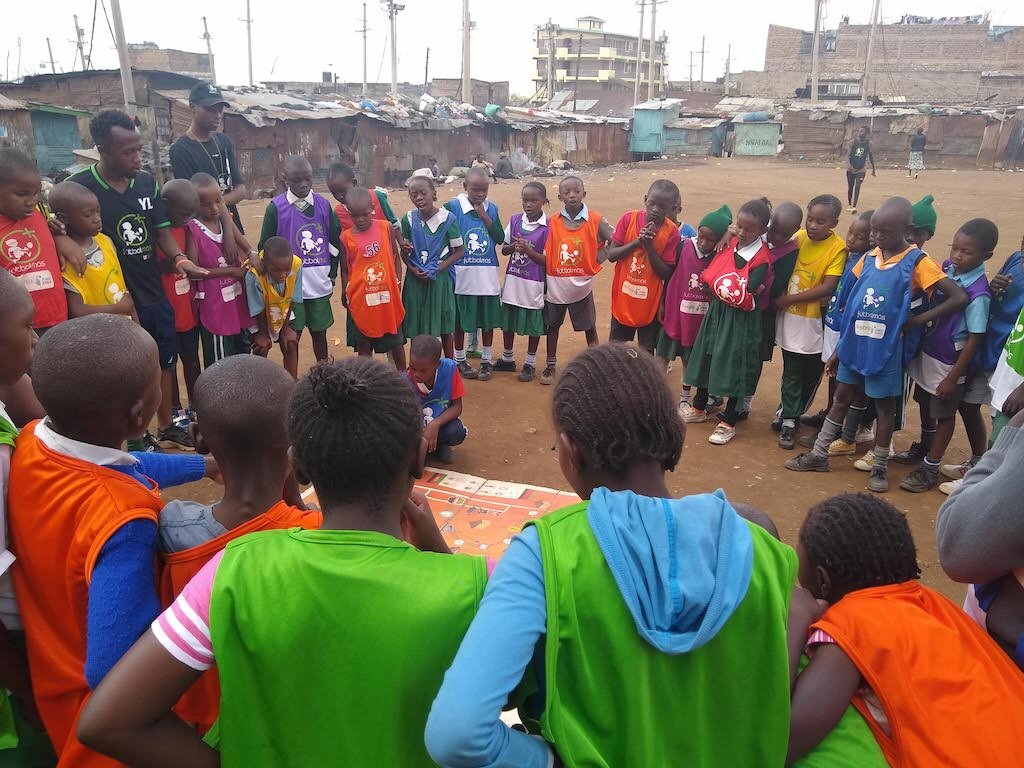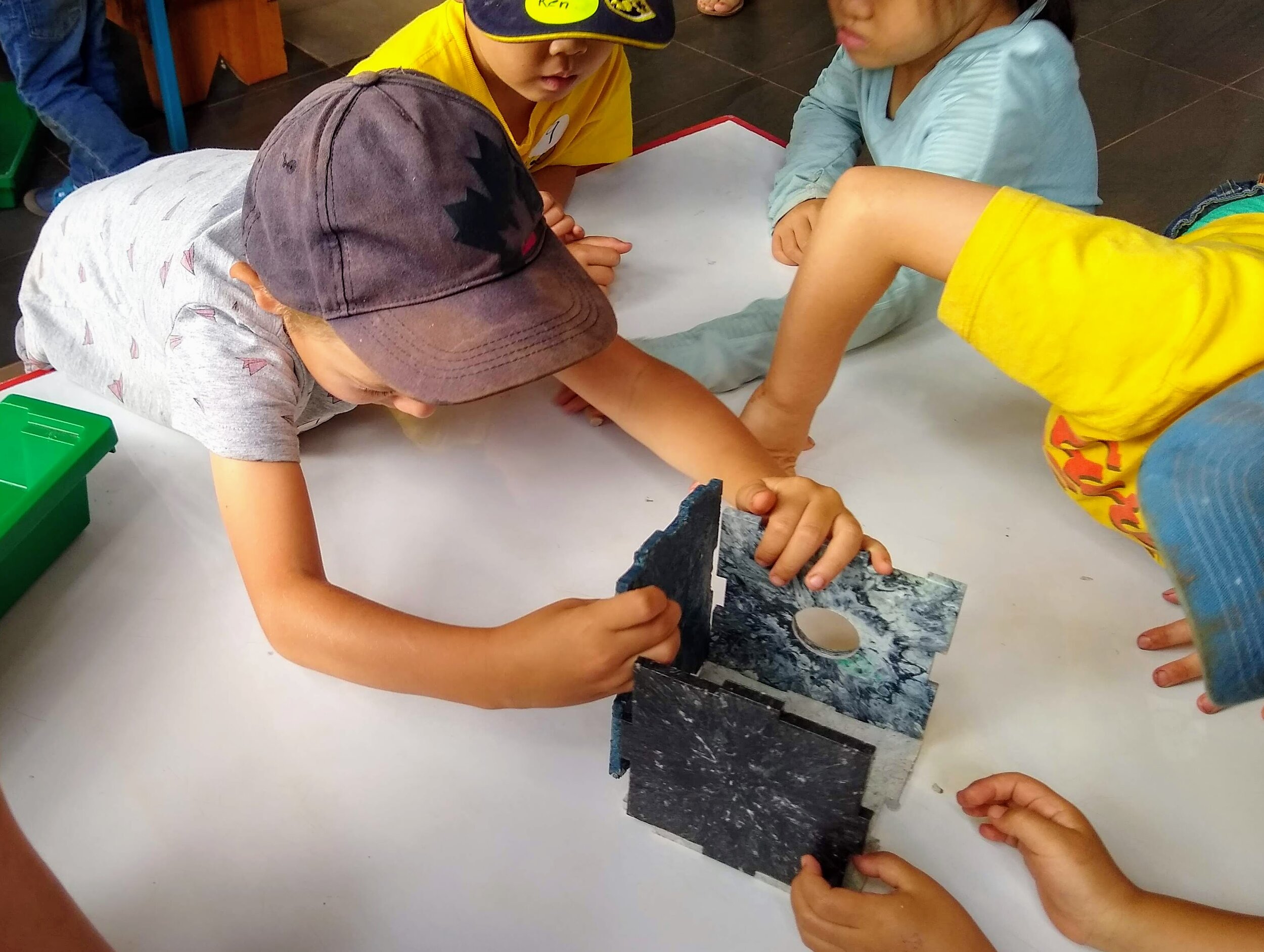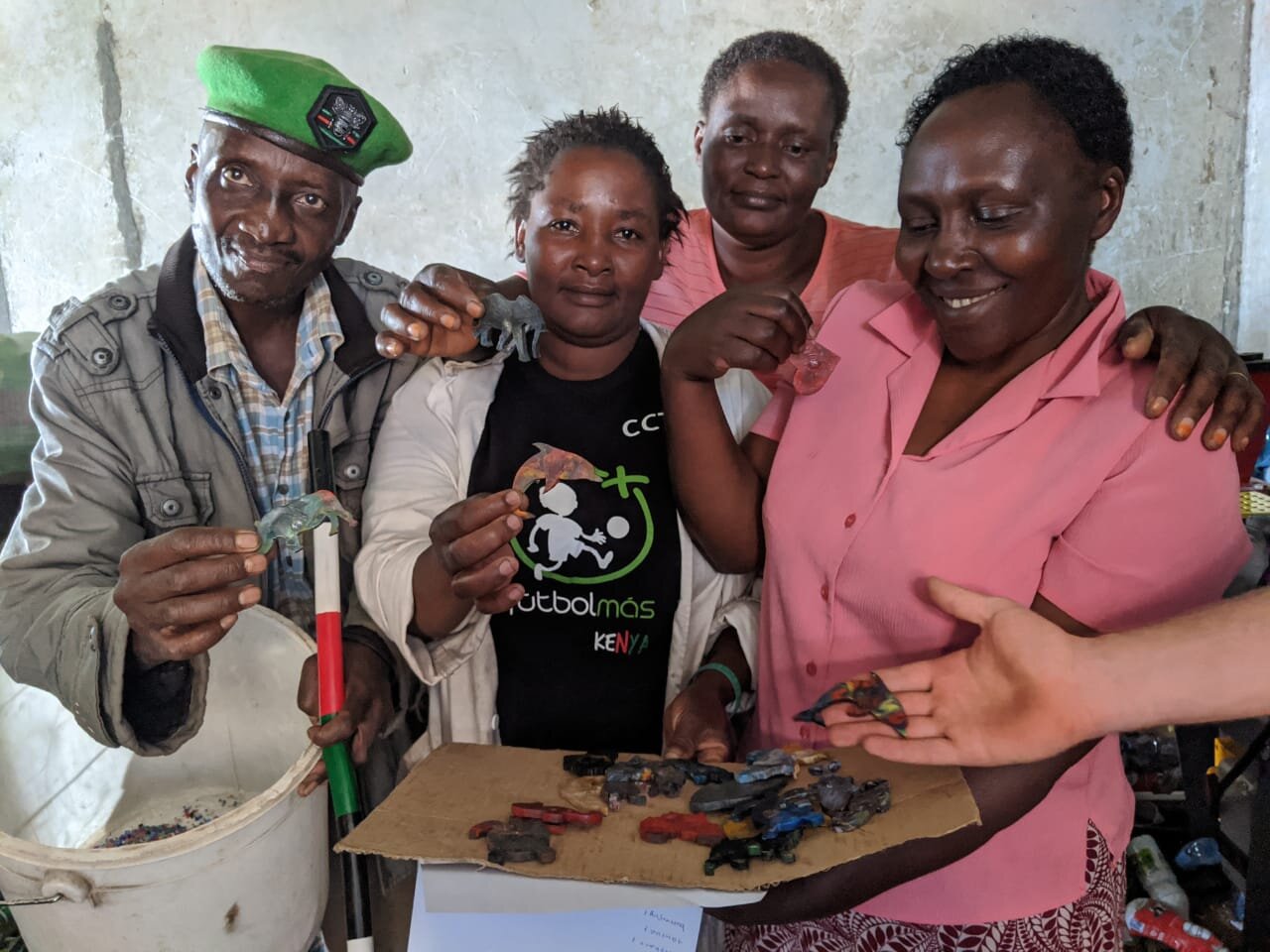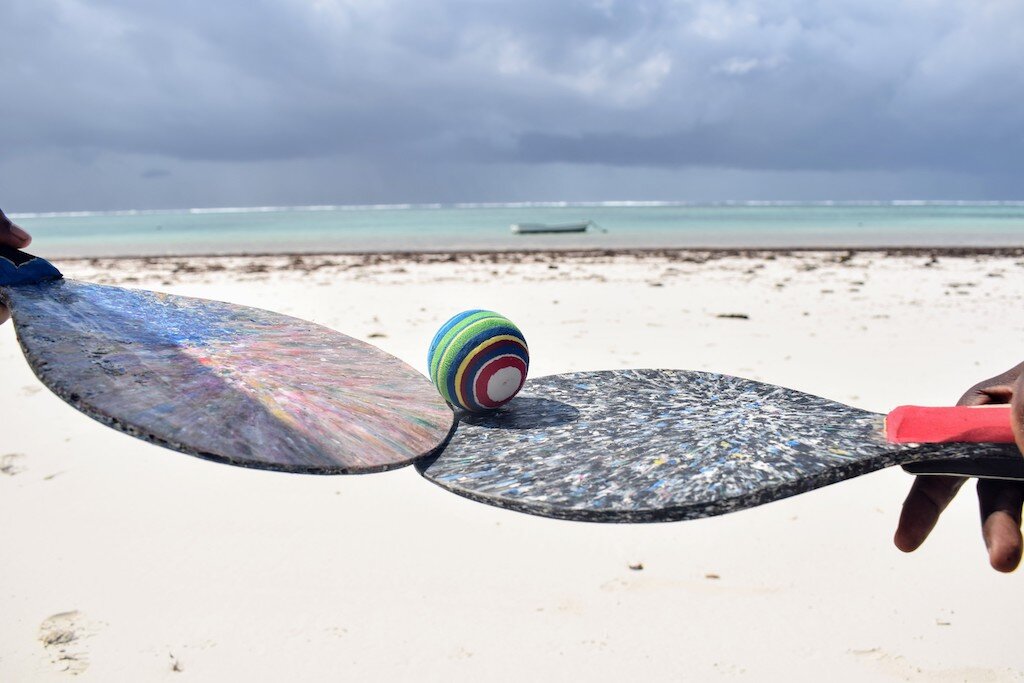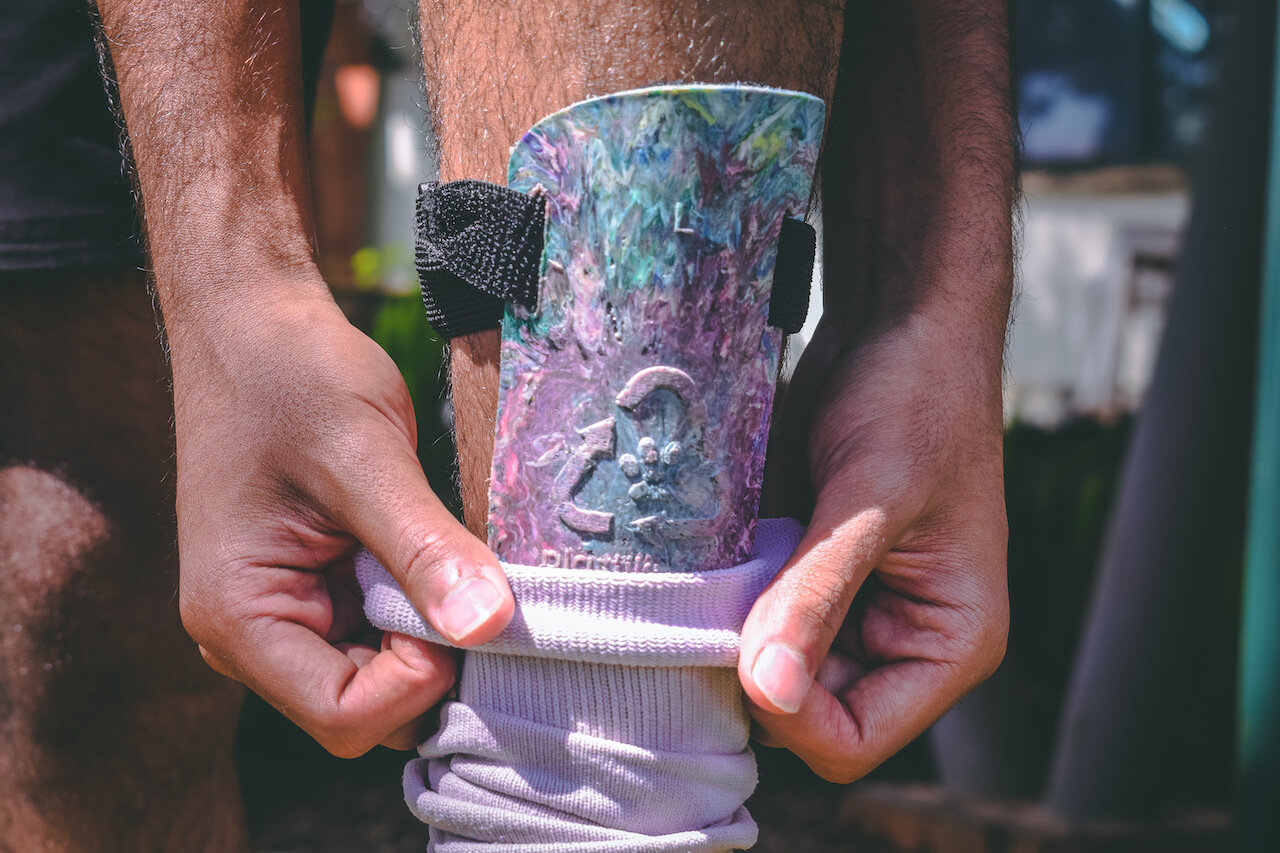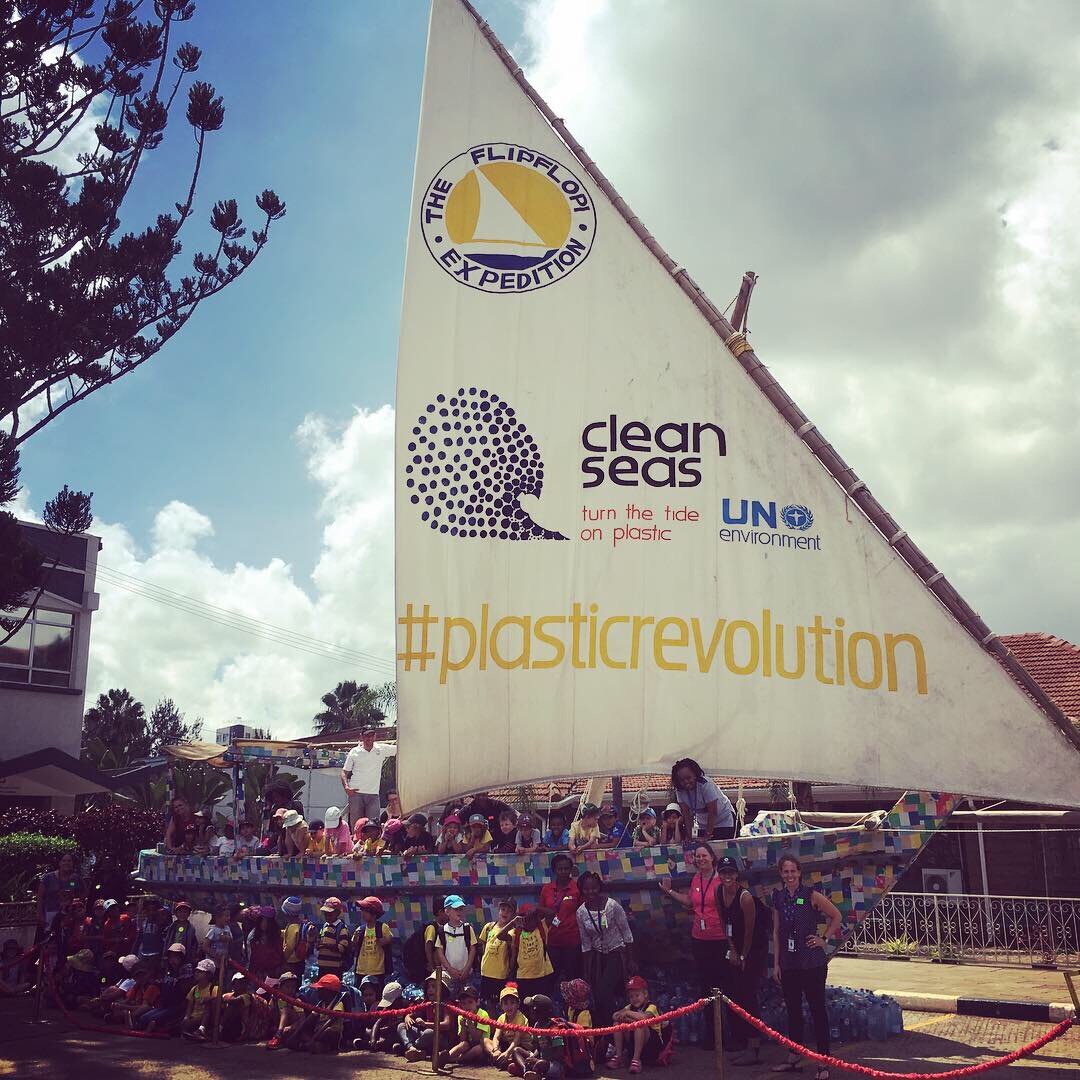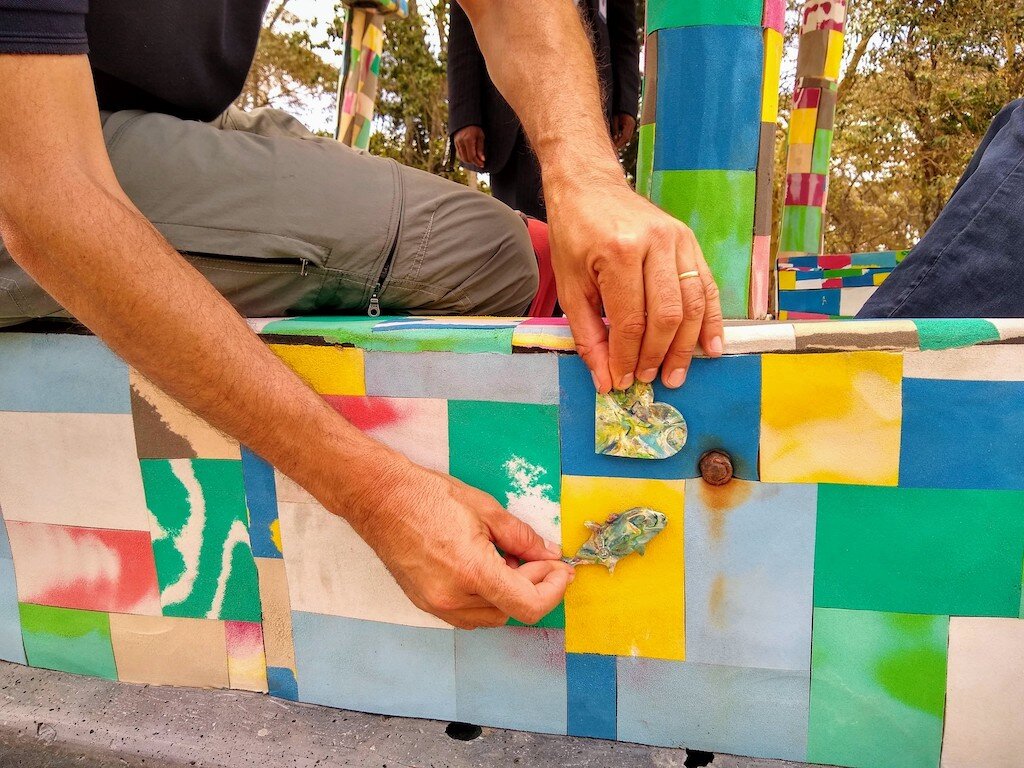Plastiki Rafiki - Students Leading Innovative Plastic Repurposing and Design
In Kenya, like many other countries around the world, most waste goes uncollected, littering communities and ecosystems, causing untold harm to the health of people. What does get collected often ends up dumped in unsegregated landfills, where it gets burned, further damaging the health of nearby communities.
The cost of setting up recycling plants is high - so what if we could start with local waste management solutions, giving communities the ability to repurpose and reuse their waste, while earning an income?
One group of students had this vision - aiming to clean up their local environment and empower communities to earn a living through plastic recycling and creative product design. Today, Davina zooms in with Vanshika Virmani, Camila Parsons, and Amani Kiruga, the Founders of Plastiki Rafiki (a student-led club at the International School of Kenya), to find out more about what they do, why they do it, how they’ve been affected by COVID-19, and what the way forward is.
Who is Plastiki Rafiki?
We are a collection of 10 - 12 students who care a lot about our environment and have put in work to actualize what we want to see. Our 4 main pillars are:
● Environment: helping to clean and protect our local environment by promoting and sponsoring rubbish collection drives in targeted natural spaces.
● Product Design: creating unique products out of waste plastic, using design thinking methodologies.
● Building Machines: manufacturing a range of plastic recycling machines adapting open source designs.
● Networking: working together with like minded organisations trying to work towards a cleaner, greener Kenya.
We initially started as a design club (Construction by Design); with the goal to help the community through acts of service such as building playgrounds.
After stumbling upon Precious Plastic and their open source designs, we built a shredder and compression oven for rapid prototyping for our design classes. But we soon realised the incredible potential of creating and selling products made from plastic that we had recycled.
This was nearly 2 years ago. Since then, we have scaled up tremendously and evolved from giving new life to single use plastic to empowering communities to tackle this problem independently. What hasn’t changed is our passion to solve the plastic pollution problem.
What problem(s) are you trying to solve?
The historic plastic bag ban in Kenya got us thinking deeply about the plastic pollution problem. While we realised that the quantity of plastic bags in our environment was very high, we also noticed that the volume of hard plastics far exceeded anything else.
We therefore decided to tackle the recycling of hard plastics, centred on the community around us.
What does the design process look like?
We are constantly collecting trash through events around Kenya carried out with our school e.g. when students go on intercultural trips, they pick up trash within the community they are staying in. We also have a recycling center at our school where people bring plastic items that they’ve used.
We then collect the plastic that we can use - mainly HDPE, sort it by colour, wash it and shred it with the machines that we’ve built.
We also have a constantly evolving design process, and we regularly engage and brainstorm with our community on new ideas for products to create. Once these ideas are fleshed out, we prototype them in our design lab. If all goes well with the prototype, we can begin production.
As our interests are diverse and our curiosity is boundless, there are plenty of products we have created, including key chains, beach toys, chairs, fridge magnets, and chess sets. The only constraints we have are size and dimensions.
We have an online shop where we sell these products, but we also work on orders for clients who want specific products.
Recently, we have started moving away from the design of products to the customisation of machines. What this means is that we have partnered with different organisations to supply them with machines that we’ve built using modified open source designs from the Precious Plastics website. We do all of this with technical guidance from our school technicians, Mr. Bernard and Mr. Pheras, and our teacher supervisors, Mr. Sudra and the McRory’s.
We have also run workshops in Diani and Mathare to train communities on using these machines, while also connecting these communities to the market. Our goal is to create a symbiotic relationship between different centres, where shredding, production, and selling can happen in harmony.
What are some of the challenges you faced?
What started out as a side project has turned into a business, which none of us were prepared to run. On the technical side, understanding plastic recycling was quite difficult, starting with learning how to sort the plastics correctly.
But the biggest challenge we’ve faced is time. Our teacher supervisors and technicians have full time jobs, and the rest of us are full time students which takes up a huge chunk of our day. We don’t get to meet often, so finding the time to understand the plastic recycling process including designs, machines, software, business, etc. has been challenging to do, especially considering how rapidly we’ve grown and that we are also in our final year of high school.
How do you engage the student community in waste management?
Within our own school, we engage younger students through club fairs and bazaars, with the aim to get them exposed to STEM (science, technology, engineering, maths) as well as building their interest in recycling and innovating with plastic.
For example, we built birdhouses for the elementary school, and then assembled it together while having an interactive discussion on the plastic pollution problem. We have found that having a tangible product is very attractive to students.
We also engage students through trash pickups and work together with different school clubs who are advocating for better plastic consumption and disposal.
We have also been in touch with students from other schools who are interested in learning more about plastic recycling, and we hope they are spurred to create initiatives around this problem.
What impact have you witnessed?
We worked with the student environmental club to transition our school from our previous waste collecting company (which did not segregate or repurpose waste) to Taka Taka Solutions, who recycle/repurpose different types of waste. We also continue to advocate for responsible production and consumption and have seen students running more and more advocacy campaigns and also creating art with plastic bottles.
Furthermore, we see students coming up with their own designs for Plastiki Rafiki as well as incorporating our designs into their own engineering projects.
We have also recycled over 2,300 kgs of plastic waste which would otherwise have remained in our environment, harming the health of people and animals, and negatively impacting the ecosystem.
Additionally, we have run 3 training workshops in Diani and Mathare, and these centres are now employing people.
In Diani, we worked with Kwale Plastics to set up a demonstration unit for the community and create machines that can bring income to the community. We also trained them to use the machines, and supported the development of their business plan as well as market assessments. In Mathare, we are working with a youth group called Futbolmas, and have provided them with machines to pilot plastic recycling within their community, as well as the necessary training and moulds for them to begin their work.
How has Flipflopi contributed to your work?
We have similar overarching goals with Flipflopi, that is, raising social awareness of the plastic pollution problem and generating innovative solutions around it.
When the Flipflopi was at Aga Khan in Nairobi, we brought the 3rd grade students (who had also fundraised for the flipflopi project) on a trip to learn more about what Flipflopi was aiming to achieve and how they were doing it. We also aim to create some products for Flipflopi.
We are also excited to have created a machine for Flipflopi’s Kisumu hub, which will allow the hub to demonstrate plastic recycling to the community and begin recycling waste. We also plan to have a stall and a workshop during the Lake Victoria expedition, allowing us to engage the community on the innovative ways we can repurpose plastic waste.
How has COVID-19 impacted your work?
During this time, we have limited resources to work on Plastiki Rafiki, but a lot more time. We cannot go to the lab to work on projects and our business has been disrupted, so we are currently working on an e-commerce website to connect Plastiki Rafiki (including the Mathare and Diani centres) to a wider market interested in buying our products.
What are your goals for the future?
In the short term, we want to make products that will help alleviate issues to do with COVID-19. We are prototyping door grippers/hooks, but because we can’t access the lab at the moment, our teacher Mr. Sudras is leading this prototyping.
As we are seniors and close to graduating school, we are working to ensure the club functions well after we have gone. This is a bit challenging right now because the pandemic has interrupted the skills transfer to the next group of leaders. However, we are hopeful that we will make the club sustainable.
In the long term, we are looking to expand to more parts of Kenya, through creating more local workshops to provide employment and awareness on plastic waste. We aim for these workshops to tackle the problem/design in a local context. e.g. at Lake Victoria, the workshops could create food dehydrators for fish that have been caught.
Ultimately, our biggest goal is to leave the next group of students with a clearer vision on who Plastiki Rafiki is - a community centric initiative. To this end, we are creating an action plan to guide this.
What support do you need to achieve your goals?
We appreciate feedback; the validation of the work we are doing is especially motivating for younger students who are looking to grow in this area.
We are also looking for a broader network (from government all the way to private sector) to help us grow our capacity, impact, and reach.
(All images are credited to Plastiki Rafiki)
